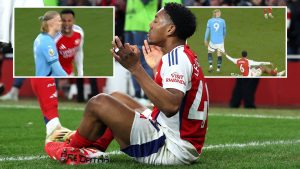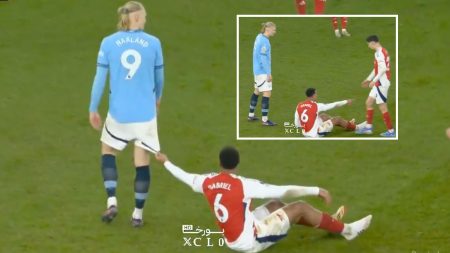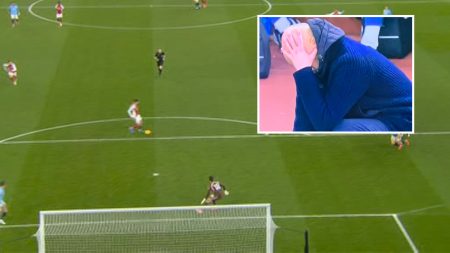The Davis Cup tie between France and Brazil witnessed a heated exchange between Thiago Seyboth Wild and Arthur Fils, sparked by a controversial umpiring decision. During a crucial moment in the second set, with Seyboth Wild serving at 4-5, Fils hit a forceful backhand that appeared to sail out of bounds. However, the umpire ruled that the ball had grazed Seyboth Wild’s back, awarding the point and subsequently the game to Fils. This decision left Seyboth Wild visibly stunned and incensed, believing he had been unjustly penalized. He vehemently protested to the umpire, but his appeals were dismissed. The Brazilian team also voiced their disapproval, arguing that the ball had clearly missed Seyboth Wild.
The disputed call significantly altered the momentum of the match, putting Fils in a commanding position to close out the set and ultimately the rubber. While Fils served for the match, tensions continued to simmer. Upon securing the victory, Fils was met with angry reactions from members of the Brazilian team, leading to a near confrontation between the two players. Team officials intervened to separate the players and prevent the situation from escalating further.
The incident sparked significant debate among viewers and commentators. A large segment of the audience criticized Fils for not acknowledging the apparent error and conceding the point, questioning his sportsmanship. They argued that a player with integrity should prioritize fair play over a potentially incorrect call. Conversely, some viewers defended Fils, asserting that he was not obligated to correct the umpire’s decision and that his focus should be on playing the game. They pointed to Fils’ muted celebration after winning the point and his attempt at a respectful handshake as evidence of his good intentions.
The post-match discussion centered around the role of sportsmanship and the responsibility of players to intervene in perceived officiating mistakes. Some argued that players have a moral obligation to correct obvious errors, even if it means giving up a point or a game. Others maintained that respecting the umpire’s authority and the rules of the game takes precedence. The incident highlighted the complex interplay between competition, fairness, and the subjective interpretation of rules in a high-stakes sporting environment.
Fils later acknowledged that he believed the umpire had made the wrong call, stating that Seyboth Wild had not touched the ball. He maintained, however, that he would not have conceded the point even if the situation were reversed. Fils insisted that there was no lingering animosity between him and Seyboth Wild, explaining that they had discussed the incident and cleared the air. His comments further fueled the debate, with some interpreting his admission as a justification for his earlier inaction, while others viewed it as a candid assessment of a difficult situation.
The controversy surrounding the disputed point overshadowed the overall outcome of the tie. France went on to win the Davis Cup encounter against Brazil 3-0, advancing to the next round against Croatia. While the incident became a focal point of discussion, it also served as a reminder of the pressures and complexities that athletes face in the heat of competition. The incident underscores the delicate balance between winning, fair play, and the imperfections inherent in officiating any sport.











